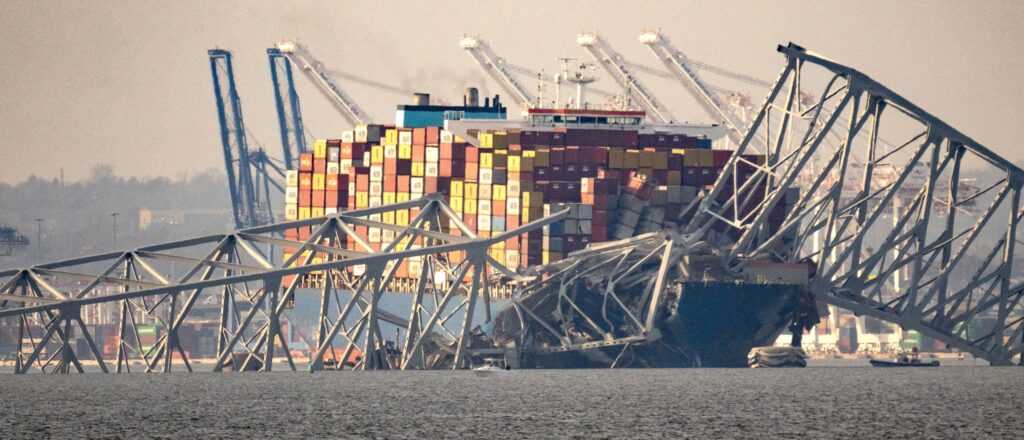The recent collapse of Baltimore, Maryland’s, Francis Scott Key Bridge threatens to raise reinsurance prices for insurance companies, which could weigh on profits, The Wall Street Journal reported Monday.
The bridge was covered by around 80 different reinsurance firms, which insure insurance firms against big, unlikely disasters, with the potential collective payout likely being around $2 billion to $4 billion, putting pressure on premiums as expenses rise, according to Fitch Ratings. A container ship navigating the river hit the 1.6-mile bridge that spanned the lower Patapsco River in the early morning of March 26, causing it to collapse and sending several cars and workers into the water. (RELATED: Home Costs Rising Twice As Fast As Americans’ Incomes)
Despite being insured, the insurance companies could still be left with a hefty burden due to factors like ligation around the event, leading companies to possibly turn to hikes in pricing to recoup costs, according to the WSJ. Higher pricing from reinsurers has in the past led to more limited access to home or auto insurance for consumers in certain markets as expenses from payouts and reinsurance fees jumped.
Insurance for American consumers has already seen an uptick under President Joe Biden, such as auto insurance, which has risen 28% since January 2021, while tenant and household insurance have risen around 4.1% in the last year, according to the Federal Reserve Bank of St. Louis. The jump in insurance costs follows price increases from inflation and an uptick in claims.
“Longer-term, unanticipated multibillion-dollar events, derived from natural or man-made acts, influences insurers’ risk appetite and willingness to provide underwriting capacity,” analysts at Fitch Ratings wrote last week following the disaster. The analysts noted that the bridge collapse “will foster continuation of positive pricing trends.”
Fallen Baltimore Bridge Recovery Continues
Crews are still removing the concrete & steel from the Francis Scott Key Bridge. Dive teams have been assessing the structure under the surface. The boat too has been checked it can safely float away once the wreckage is removed, but… pic.twitter.com/HxxAblzqdy
— RT_India (@RT_India_news) April 1, 2024
The total payout for insurance companies on man-made catastrophes was $9 billion in 2023 without a large disaster like the Baltimore Bridge collapse, slightly lower than the recent 10-year average of $10 billion, meaning the payout for companies could be significantly higher in 2024, according to the WSJ. The total average payout for catastrophe losses last year was $108 billion, more than the recent 10-year average of $89 billion.
The global marine insurance market has already been struck by increased costs in recent months due to attacks from Iran-backed Houthi rebels in the Red Sea, raising shipping costs.
The bridge was a key passageway for the Port of Baltimore, which handled around 52 million tons of cargo imports in 2022, equating to around $80 billion worth of goods. The port also handled around 20% of American coal exports.
All content created by the Daily Caller News Foundation, an independent and nonpartisan newswire service, is available without charge to any legitimate news publisher that can provide a large audience. All republished articles must include our logo, our reporter’s byline and their DCNF affiliation. For any questions about our guidelines or partnering with us, please contact licensing@dailycallernewsfoundation.org.


